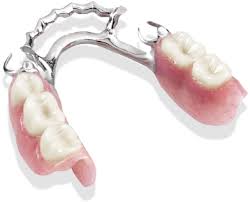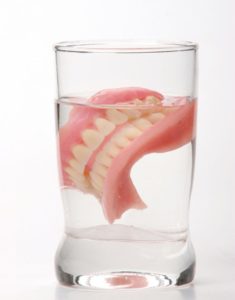SHARES
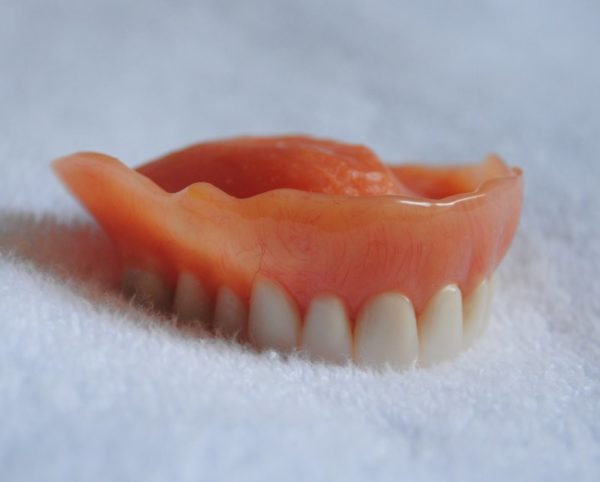
Life expectancy around the world has been increasing steadily. By 2050, it is expected that there will be approximately two billion people who are aged 60 or older. Hence, the demand for full or partial dentures is expected to increase.
Denture is an option when it comes to replacing lost or missing teeth. It can be made of either acrylic (plastic) or metal. A full denture is one which replaces all natural teeth either in the upper or lower jaw. On the other hand, a partial denture replaces several lost or missing teeth. It can also be retained to the natural teeth with metal clasps or ‘precision attachments’.
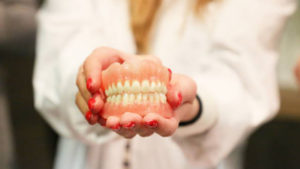 Full dentures Image source
Full dentures Image source
Partial denture Image source
If you wear a denture, it is important to take care of both the condition of your denture and oral health. Below are several denture care tips:
-
Brush and rinse your denture daily
Remove and gently brush your denture with a soft-bristled brush and non-abrasive denture cleanser to remove food, plaque and other deposits. Brushing helps to prevent permanent stains on the denture. Do not use toothpaste as it is abrasive and cause microscopic scratches where food and plaque can build up. It is suggested to brush your denture at least once every day and rinse it after each meal.
-
Handle your denture with great care
Dentures can break easily when they are dropped on the ground. You can stand over a folded towel or a sink of water when handling your denture to avoid accidently dropping it. . Besides that, be careful not to damage any plastic or attachments while handling and wearing the denture.
-
Soak and clean your denture with a denture-cleansing action
Denture-cleansing solution promotes chemical breakdown of the remaining plaque and some level of disinfection of the denture. However, denture-cleansing solutions should only be used outside of the mouth and manufacturers’ guidelines should be followed strictly. Also, avoid using bleach as bleach may whiten the pink acrylic of the denture.
-
Avoid keeping your denture in the mouth overnight
Denture should not be kept inside the mouth overnight unless you have been instructed to do so. Keeping your denture overnight for long term put you at a higher risk of developing denture stomatitis due to harbouring of bacteria. Your mouth requires rest after a whole day of denture wearing. When the denture is not being worn, soak and keep the denture moist so it does not dry out or lose its shape. Do not ever place the denture in hot water as it can cause the denture to warp.
-
Clean your mouth after removing your denture
Always remember to use a soft toothbrush to clean your natural teeth, tongue, cheeks and roof of your mouth to remove plaque and stimulate circulation in the mouth. If you use denture adhesive, remove any remaining denture adhesive from the gums.
-
Attend regular recall and follow up appointments with your dental provider
It is important to schedule regular dental check ups to have your denture examined and professionally cleaned. Your dentist can help to ensure a proper fit to prevent discomfort as well as to check your oral health if there is any irritation, infection or sores.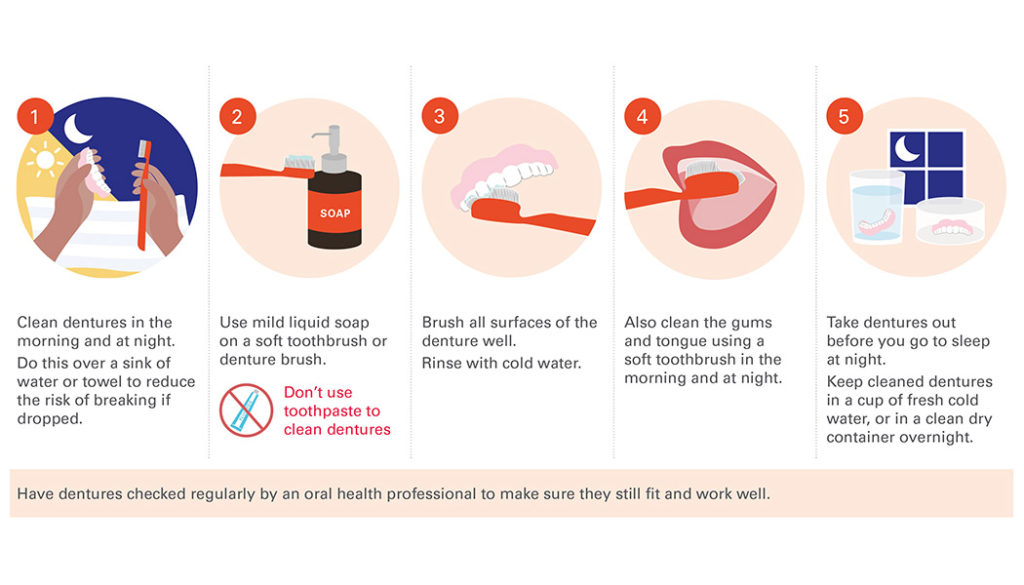
Image source
Conclusion
Over time, dentures will need to be relined, rebased or remade due to wear and natural changes to the face, jaw bones and gums which may cause the dentures to become loose. Visit a dentist regularly to ensure a proper denture fit and keep any oral diseases at bay.
If you need to consult a Dental Surgeon: call, send an enquiry or book an appointment on GetDoc.
Find a Dental Surgeon in Malaysia, on GetDoc
Find a Dental Surgeon in Singapore, on GetDoc
by Soh May Leng
Born and raised in Malaysia, May Leng obtained her Bachelor of Dental Surgery from the University of Otago, New Zealand. She has joined the GetDoc team to relay valuable health information to the public. Staying active plays a big part in her daily life especially through outdoor sports such as running and swimming. She also enjoys travelling and has a passion for photography. View all articles by Soh May Leng.
